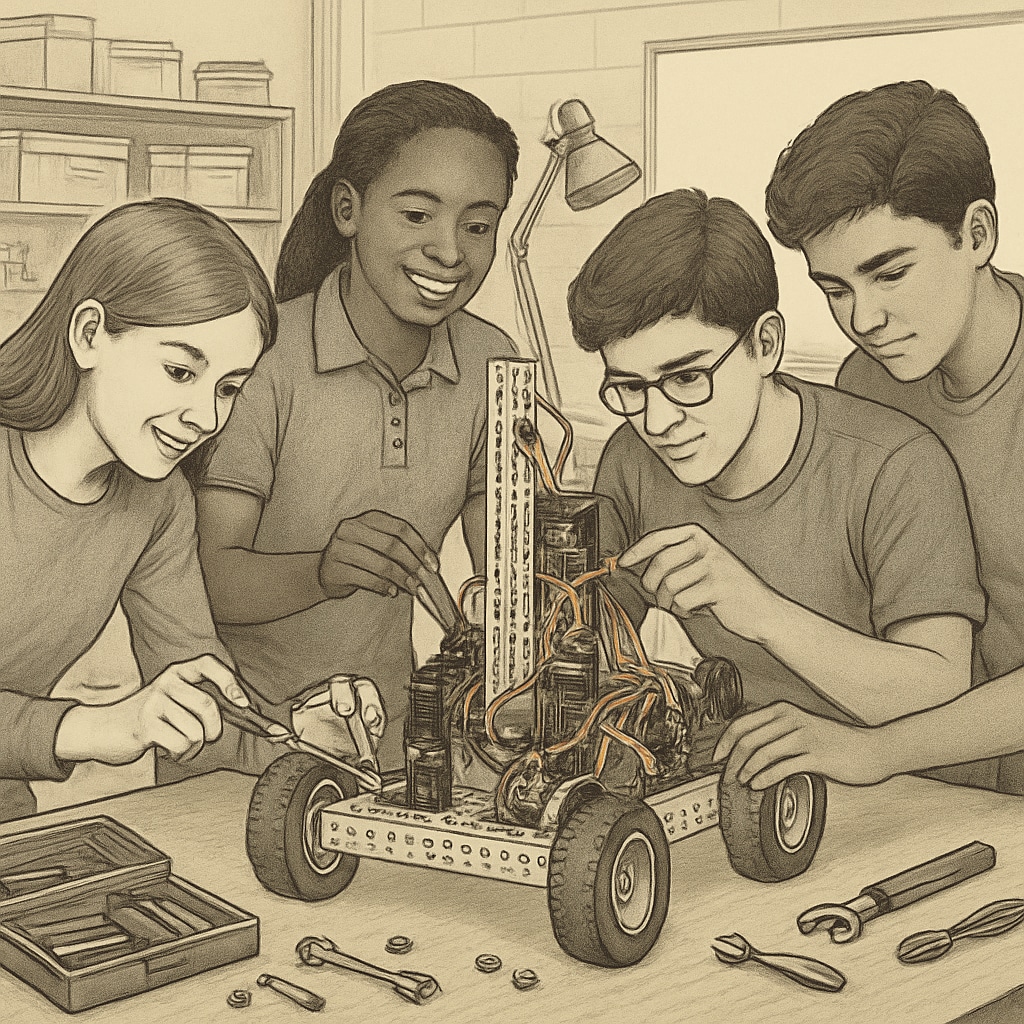The combination of an online degree and a mechanical engineering major can significantly enhance a student’s career prospects while fostering essential skills like time management and resource allocation. In the modern education landscape, students often seek ways to diversify their skill set and increase employability. This approach not only prepares individuals for the complex demands of engineering but also equips them with the adaptability required to thrive in today’s workforce.
Building Strong Foundations During K12 Education
The journey toward excelling in mechanical engineering and parallel learning paths begins well before college. K12 education plays a crucial role in nurturing curiosity, fostering problem-solving abilities, and introducing students to the fundamentals of engineering thinking. Early exposure to science, technology, engineering, and mathematics (STEM) can ignite a passion for mechanical engineering while also preparing students for the rigors of higher education. For instance, participation in robotics clubs or coding workshops during high school offers hands-on experience that lays the groundwork for future academic pursuits.

In addition to technical preparation, K12 education can emphasize the importance of time management and multitasking. Skills like setting priorities and balancing academic and extracurricular commitments are crucial for students who later choose to pursue dual educational paths. Empowering young learners with these abilities ensures they are better equipped to navigate the challenges of college and beyond.
The Advantages of Combining Mechanical Engineering with an Online Degree
Many students pursuing a mechanical engineering degree opt to simultaneously enroll in online programs to diversify their expertise. This combination offers several advantages:
- Enhanced Career Opportunities: Adding another qualification, such as business management or data analytics, complements the technical expertise gained from mechanical engineering and makes graduates more attractive to employers.
- Flexibility in Learning: Online programs often allow students to customize their schedules, enabling them to balance rigorous engineering coursework with additional studies.
- Broader Skill Set: Combining disciplines fosters interdisciplinary thinking, which is invaluable in addressing real-world engineering challenges.
For example, students who pair mechanical engineering with an online degree in computer science can leverage their dual expertise to excel in emerging fields like robotics or artificial intelligence. Similarly, those who study economics alongside engineering gain insights into project budgeting and resource management, making them indispensable in industries like manufacturing or construction.

Effective Time Management: The Key to Success
Pursuing dual degrees demands exceptional time management skills. Students must allocate their time wisely between coursework, hands-on projects, and any additional responsibilities such as internships or part-time jobs. Here are some tips for effective time management:
- Set Clear Goals: Define short-term and long-term objectives for both degrees to stay focused and motivated.
- Create a Schedule: Use digital tools like calendars or task management apps to organize study sessions and deadlines.
- Prioritize Tasks: Tackle high-priority assignments first and allocate dedicated time slots for complex subjects.
- Leverage Support Systems: Seek guidance from professors, academic advisors, and peers to stay on track.
By mastering these strategies, students can effectively manage the demands of dual programs while maintaining a healthy work-life balance.
Preparing for Long-Term Career Development
Combining a mechanical engineering degree with an online program not only enhances immediate career prospects but also lays the foundation for long-term professional growth. Employers increasingly value candidates who demonstrate a commitment to continuous learning and adaptability. Dual-degree students are often perceived as highly motivated and capable of managing complex workloads, making them ideal candidates for leadership roles.
Additionally, the ability to juggle multiple areas of study mirrors the interdisciplinary nature of modern engineering projects. For instance, designing a sustainable energy solution might require expertise in mechanical systems, environmental science, and economic feasibility—skills that can be developed through diverse educational paths. As a result, students who embrace dual-degree opportunities are better equipped to tackle the multifaceted challenges of today’s industries.
In conclusion, pursuing an online degree alongside a mechanical engineering major is a strategic choice that offers numerous benefits. From enhancing career opportunities to developing critical skills like time management, this approach empowers students to excel in their chosen fields. By starting early during the K12 years and embracing lifelong learning, aspiring engineers can position themselves for success in an ever-evolving job market.
Readability guidance: This article uses short paragraphs and lists to ensure clarity. Transition words such as “for example” and “in addition” are employed to maintain a logical flow, and passive voice is minimized for a more engaging style.


